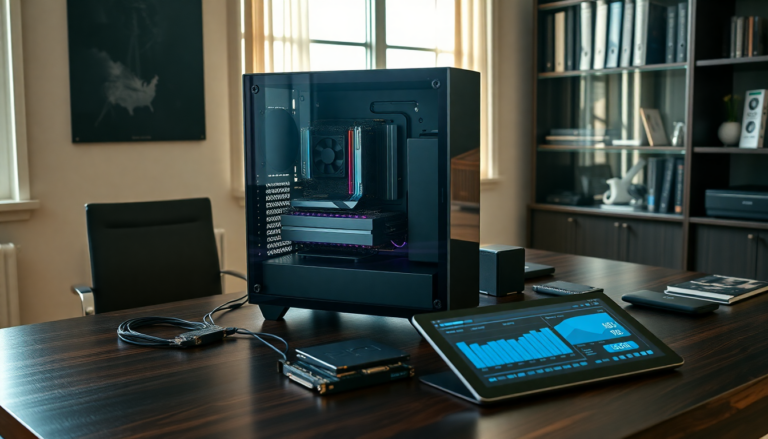Argomenti trattati
In today’s fast-paced digital landscape, the demand for expansive and efficient storage solutions has never been more critical. Have you ever felt the frustration of running out of space just when you need it most? HighPoint Technologies is here to help with the recent launch of two groundbreaking PCIe adapters that promise to significantly enhance your system’s storage capabilities. Enter the Rocket 1628A and 1528D NVMe Switch Adapters, which allow users to connect multiple PCIe devices through a single PCIe slot—transforming how we think about storage in both personal and professional settings.
The Importance of Storage Expansion
As we navigate the complexities of data management, the significance of having adequate storage cannot be overstated. Whether you’re a business owner or a tech enthusiast, maximizing your system’s efficiency is likely at the top of your mind. The new adapters from HighPoint Technologies offer an impressive solution by enabling the direct connection of up to eight PCIe devices or even 32 NVMe drives through a compliant backplane. Just imagine the possibilities—these capabilities make these adapters invaluable for environments where space is at a premium.
Designed with versatility in mind, these adapters don’t just support NVMe drives; they also accommodate a variety of other devices such as GPUs, network interface cards (NICs), and capture cards. This flexibility means you can integrate all the tools you need without worrying about running out of slots. Plus, with HighPoint’s innovative PCIe switching architecture, you can expect optimized performance thanks to intelligent bandwidth distribution across multiple devices—say goodbye to potential bottlenecks!
Technical Specifications and Features
So, what’s under the hood of these impressive adapters? The technical specifications reveal just how adept they are at meeting high-density storage needs. The Rocket 1628A operates via a PCIe 5.0 x16 bus interface, while the Rocket 1528D utilizes PCIe 4.0 x16. Both models support industry-standard MCIO and SlimSAS interfaces, ensuring seamless integration with your existing hardware setups.
In terms of physical attributes, the Rocket 1628A measures in at 155 x 68.9 mm and weighs just 0.75 lbs, with a power consumption of 16.28 watts. The Rocket 1528D, while slightly less powerful, still provides a robust solution, consuming only 29.58 watts. And let’s not forget about the intelligent self-diagnostic LED indicators—these handy features allow you to monitor the status of each card without the hassle of disassembling your system.
Another major plus? These adapters come equipped with hot-swap capabilities, meaning your systems can stay operational even during maintenance. For businesses that rely on uptime, this feature minimizes disruptions in service. Isn’t that a game changer?
Applications and Market Positioning
The potential applications for the Rocket 1628A and 1528D are vast. They’re particularly well-suited for data centers and edge computing environments that demand high-density storage solutions. If you’re involved in AI or machine learning infrastructures, where multi-GPU setups are often necessary, these adapters are a perfect fit. Even industrial automation systems that rely on multiple PCIe sensor arrays can take advantage of the enhanced connectivity options these devices provide.
However, it’s essential to note that these products are primarily designed for enterprise use and are compatible with EDSFF E1.S and E3.S SSDs. So, if you’re on the hunt for standard consumer-grade M.2 drives, these options may not be your best bet. But for those seeking an enterprise-level solution, the Rocket 1628A is priced at $1,499, while the more budget-friendly Rocket 1528D retails at $699—substantial value for the capabilities offered, don’t you think?
In conclusion, as storage demands continue to rise, innovative solutions like HighPoint’s new PCIe adapters will play a pivotal role in shaping the future of data management. By offering increased capacity and flexibility, these devices are poised to effectively meet the needs of modern computing environments. So, are you ready to upgrade your storage game?

